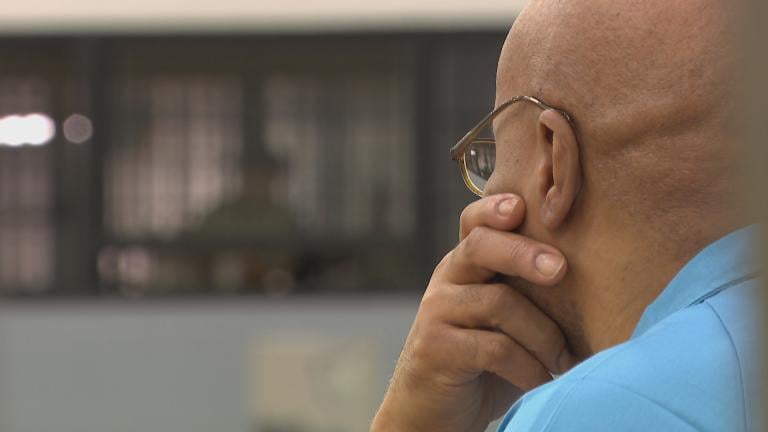 (WTTW News)
(WTTW News)
Incarcerated people in Illinois are still not getting access to quality health care, even with the Illinois Department of Corrections being under a consent decree since 2019, according to a health care monitor’s report from March 2023.
In fact, the report said, “the lack of progress towards compliance with the Consent Decree can be summarized as a failure by the State to establish the foundations of an adequate medical program in the IDOC.”
And despite appalling accounts of what’s provided as care, the Illinois Department of Corrections has awarded a new contract to the controversial Wexford Health Sources, the same private health care provider that’s been handling medical care in the state’s prison system since 2011.
Wexford’s 10-year contract with the state expired in 2021, but the company has continued to provide care in prisons, WBEZ reported.
Late December 2023, the state selected Wexford’s contract bid for more than $4 billion. It’s a five-year contract with the option to renew for an additional five years.
There was one other company that bid to provide health care to the nearly 30,000 individuals incarcerated in Illinois prisons: VitalCore Health Strategies, whose bid was about $3.5 billion.
It’s disappointing to Alan Mills, the executive director of the Uptown People’s Law Center, who was part of the case that led to the 2019 consent decree. That decree requires IDOC to implement a vast array of changes from improving the quality of medical care to hiring more staff.
He hopes that IDOC will improve efforts to comply with the decree, but he’s concerned because the “same old people who ran it before are going to be running it again.”
“That’s going to result in never-ending delays in implementing the changes that are desperately needed, and therefore people are going to get sick, they’re going to suffer and some are going to die unnecessarily,” Mills said.
IDOC public information officer Naomi Puzzello said what goes into choosing a vendor includes “capability and experience, technical ability and methodology, resources, references, commitment to diversity, and pricing.”
In a statement, Wexford Health Sources said in part that the “new agreement will enable Wexford Health to adjust and expand our services for the State, ensuring that we meet the ever-changing needs of its prison population.” The company said that “as the State’s prison health care program is one of the most complex in the nation, our Illinois knowledge and expertise will provide great value for the DOC.”
Already the state has not taken measurable steps to follow the decree. After about four years into the decree, the monitor’s report details that “few of the major deficiencies and fewer of the essential elements that resulted in the consent decree have been corrected and some have worsened.”
There were two patients among the mortality records reviewed for the report who were prescribed medications that contributed to a preventable death. One was a patient who was given an acetaminophen prescription that he was to “keep on person.” He was found to be in liver failure due to acetaminophen toxicity and died two days later.
Wexford had a “one good eye policy,” as reported by WBEZ, which, at the time, allowed for care to be denied as long as a patient had one good eye.
Fewer health care staff were working at the time of the report than before the consent decree was signed: 50% of physician positions were vacant and 46% of total health care positions were vacant.
The report documented over two-year waiting times for dental extractions.
Electronic medical records have not been implemented.
Jennifer Vollen-Katz, executive director of the prison watchdog group the John Howard Association, said these issues come with profit-driven care for incarcerated populations.
“It’s an incentive that is really misaligned with the best interest of people who are in custody,” Vollen-Katz said.
She pointed to correctional facilities that use state-run health care, where if the department were to “remove the profit motive, better care typically follows.”
Another worthwhile partnership was between IDOC and Southern Illinois University School of Medicine, which provided care to a couple state prisons. Other states have latched onto the idea; for example, Texas contracts with the University of Texas Medical School.
Whoever provides the care, Mills said the bottom line is that the state of Illinois is responsible for the care it provides to incarcerated people.
“The state remains ultimately responsible for complying with the constitution — and they are not doing so,” Mills said.
Note: This article was published Jan. 25, 2024, and updated Jan. 30, 2024, with a statement from Wexford Health Sources.







